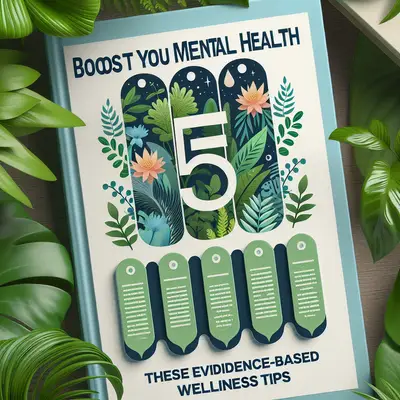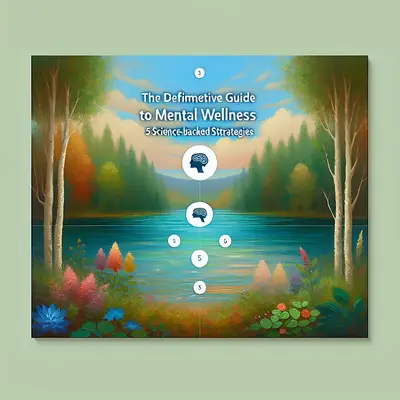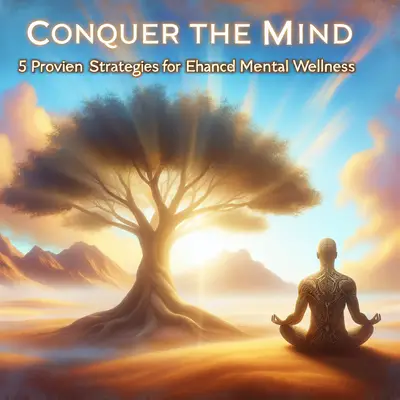In today's fast-paced world, taking care of our mental health is no longer optional but a necessity. With increasing awareness around this topic, it's important to sift through the noise and focus on strategies that are backed by research. Here are five evidence-based tips that can help you elevate your mental well-being.
1. Mindful Meditation
Mindfulness, the practice of focusing one's awareness on the present moment, has been shown in numerous studies to have a positive impact on mental health. It reduces stress, improves attention, and can even help manage symptoms of depression and anxiety. Start with just a few minutes a day and gradually increase as you get comfortable with the practice.
2. Regular Exercise
Exercise isn’t just about physical health. Research has shown that regular physical activity can help reduce symptoms of depression and anxiety. It releases endorphins, the body’s natural mood lifters, and can also improve sleep – another crucial aspect of mental health.
3. Balanced Diet
What we eat can significantly affect our brain health. A diet rich in fruits, vegetables, lean protein, and whole grains can improve mood and energy levels. Research shows that diets high in refined sugars are harmful to the brain and can worsen symptoms of mood disorders such as depression.
4. Adequate Sleep
Sleep and mental health are closely connected. Lack of sleep can affect mood, mental sharpness, and ability to handle stress. Most adults need 7 to 9 hours of sleep per night for optimal health. If you're having trouble sleeping, consider talking to a healthcare provider or a mental health professional.
5. Social Connection
We are inherently social creatures and our mental health can suffer when we feel isolated. Studies have shown that strong social connections can increase our resilience to stress, help us feel more positive, and even lengthen our lifespan. Make time to connect with friends, family, or join a social group that shares your interests.
Conclusion
Mental health is a complex and multifaceted aspect of our overall well-being. By incorporating these evidence-based strategies into your lifestyle, you can work towards improving your mental health. Remember, it’s okay to seek help when you need it. Mental health resources are available, and reaching out is the first step towards feeling better.



